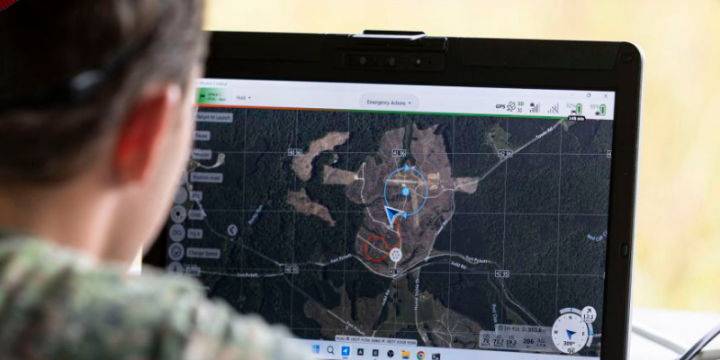Op 2 juli lanceerde de Europese The Commission launched the Quantum Europe Strategy, with the ambition that Europe should be a global leader in quantum technology by 2030. This may sound abstract, but the implications are concrete. Quantum technology is not only essential for scientific breakthroughs but also directly impacts economic growth, security, and strategic autonomy. The strategy focuses on five interrelated themes.
More about theEuropean Quantum Strategy
Read via VNO-NCW
Why European action?
Quantum technology makes things possible that conventional technology cannot: extremely fast computers, super-sensitive sensors, and completely secure communication. Consider applications in healthcare (such as quantum MRI), logistics (advanced route planning), and encrypted communication for government and businesses. Quantum is recognized as a key technology with significant strategic, economic, and security implications, and has strong dual-use applications (civil and defense). Although Europe leads the world in fundamental research and the number of academic quantum publications, commercialization and industrialization lag behind (only 5% of global quantum capital goes to European companies). The strategy aims to take concrete steps in this area by bundling investments, stimulating market development, and combating fragmentation. Coordinated action at the European level is beneficial because quantum technology requires enormous investments, economies of scale, and cross-border collaboration.
Five themes
The strategy focuses on five interrelated themes. First, the focus will be on strengthening fundamental and applied research, including a new European research initiative and so-called "Quantum Grand Challenges," aimed at breakthroughs in areas such as fault-tolerant quantum computers and GPS-free navigation. Furthermore, the infrastructure will be expanded: European quantum computers will be accommodated through the EuroHPC program, a pilot project for quantum internet will be launched, and the first European quantum satellite will be launched in 2026. Investments will also be made in advanced quantum equipment, such as MRI systems and gravimeters.
Furthermore, the broader ecosystem must grow. To this end, six production lines for quantum chips will be established starting in 2025, supplemented by open test environments for startups and a roadmap for industrialization. Furthermore, efforts will be made to expand so-called Quantum Competence Clusters in all Member States. A fourth pillar is the application of quantum technology in the fields of space, security, and defense, including integration into the Galileo navigation system. Finally, attention is paid to skills: a future-proof labor market will be ensured through a European Quantum Skills Academy (2026) and new training programs.
Next steps: commercial application, chip production, EU Quantum Act
The strategy focuses on opening up markets and attracting private investment, with a specific emphasis on startups and scale-ups and the commercialization of quantum. Through public-private funds (such as InvestEU and EIC), public procurement, and links with major industries, Europe aims to accelerate commercial application. Entrepreneurs outside the tech sector can also benefit, as the technology potentially offers solutions in a wide range of domains: from logistics and pharmaceuticals to energy and chemicals.
The strategy's implementation is already underway. A revision to the EuroHPC program will follow in the third quarter of 2025, expanding investments in quantum computing. Simultaneously, preparations are underway for six pilot production lines for quantum chips, which are expected to be operational from 2025 onwards. Furthermore, the Commission is working on legally anchoring the policy in a European Quantum Act, scheduled for 2026. Several technological roadmaps will also be published that same year—including for quantum communication, sensors, and chip development—to guide the further rollout of applications.
In short, quantum technology is no longer a pipe dream. This strategy is a clear call from the European Commission: Europe doesn't want to miss the boat again, as it did with AI or chips. Member States and companies that join now can lead the way later.





